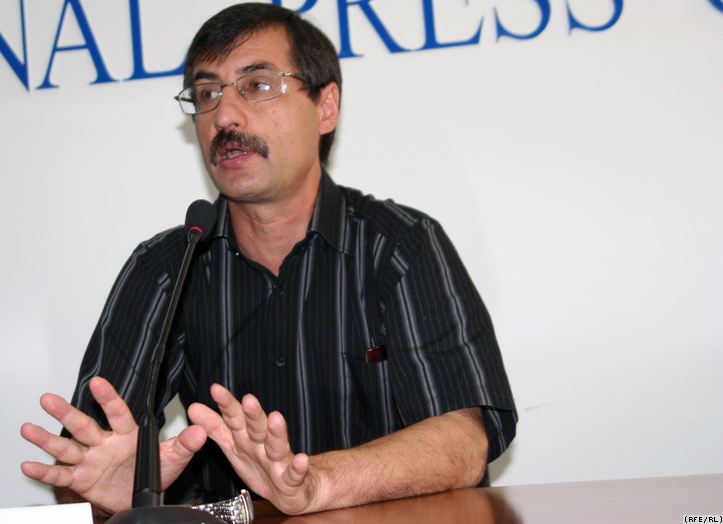 Through dialogue with the authorities, reporting on the human rights situation, participation in international forums and by offering free legal aid and human rights education for citizens in Kazakhstan, he has contributed to the strengthening of human rights in his home country.
Through dialogue with the authorities, reporting on the human rights situation, participation in international forums and by offering free legal aid and human rights education for citizens in Kazakhstan, he has contributed to the strengthening of human rights in his home country.
Zhovtis actively helped shape Kazakhstan’s human rights plan ahead of the country’s chairmanship of the Organization for Security and Cooperation in Europe (OSCE), in close cooperation with the authorities and civil society.
Following a highly controversial and much criticized trial in the wake of a tragic car accident, Evgeny Zhovtis was sentenced to four years of prison in 2009. He is currently in prison in Ust-Kamenogorsk, Kazakhstan.
Kazakhstan and OSCE chairmanship
Kazakhstan is one of five former Soviet republics in Central Asia. Since Kazakhstan’s independence in 1990, Nursultan Nazarbayev has served as the country’s president. He has been re-elected twice, and limits to the number of times he can be re-elected were removed following a referendum, meaning he may serve as president for life.
The president has built a considerable apparatus  around himself, and many of Nazarbayev’s closest relatives are among the country’s most influential people. Kazakhstan is ranked as number 120 on the Transparency International corruption index.
around himself, and many of Nazarbayev’s closest relatives are among the country’s most influential people. Kazakhstan is ranked as number 120 on the Transparency International corruption index.
This year, Kazakhstan chairs the OSCE. One concern remains that a country chairing the OSCE does not conduct elections that are in accordance with international standards as advocated by that same organization.
In spite of promises of reform and improvements to the human rights situation in the country, Kazakhstan has not fulfilled these promises in the period of its chairmanship. On the contrary, local and international human rights organizations have registered an increase in the number of vi olations related to freedom of assembly and freedom of speech, as well as freedom of religion.
olations related to freedom of assembly and freedom of speech, as well as freedom of religion.
After Norwegian companies, led by Statoil, for a number of years have invested in Kazakhstan’s oil and gas industry, Crown Prince Haakon of Norway officially opened the Norwegian Embassy in Kazakhstan’s capital Astana in February this year.
The NHC’s work in Kazakhstan
Since the late 1990s, the Norwegian Helsinki Committee has cooperated with local human rights organizations and contributed financial support. The Norwegian Helsinki Committee will open a representative office in Almaty this fall, after NHC’s representation office in Kyrgyzstan’s capital Bishkek was closed by Kyrgyz authorities in 2008.
Sakharov Freedom Award
The Andrey Sakharov Freedom Award was established by the Norwegian Helsinki Committee in 1980, with the consent and support of Sakharov himself, in order to support those who, because of their opinions, faith or conscience, are persecuted or jailed. The first Sakharov Freedom Award was awarded in 1984.
Through the 2010 Sakharov Freedom Award, the Norwegian Helsin ki Committee wishes to commend a person and an organization that are highly worthy of such attention, and to focus on Kazakhstan and Central Asia at a time when the human rights situation in the region is worsening and regional tensions increasing.
ki Committee wishes to commend a person and an organization that are highly worthy of such attention, and to focus on Kazakhstan and Central Asia at a time when the human rights situation in the region is worsening and regional tensions increasing.
The 2010 Sakharov Freedom Award ceremony will take place at The Norwegian Theatre in Oslo on 9 September 2010.
Contacts
Secretary General Bjørn Engesland: mobile +47 957 53350.
Deputy Secretary General Gunnar Ekeløve-Slydal: mobile +47 952 10 307.
Head of Information Berit Lindeman: +47 909 33 379.
HRH Oslo, based on the Norwegian Helsinki Committee press realease.
Related links:
Kazakhstan’s OSCE chairmanship: Kazakhstan must implement its Human Rights obligations





